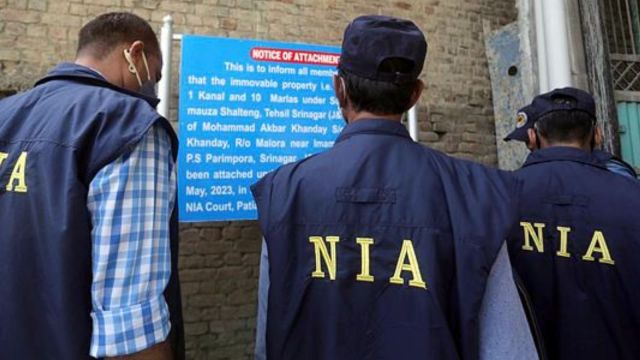NIA charges five in ISIS-inspired 2022 Coimbatore car bomb case
The NIA has maintained that the attack was a calculated attempt to instigate communal unrest and signal the presence of an organised extremist network in Tamil Nadu, drawing from both local recruits and broader ISIS narratives.
 The latest charges bring the total number of individuals formally accused in the case to 17.
The latest charges bring the total number of individuals formally accused in the case to 17.The National Investigation Agency (NIA) Thursday filed a supplementary chargesheet against five men in connection with the 2022 car bomb explosion near a temple in Coimbatore, a case the agency has said was inspired by the Islamic State terror group.
The latest charges bring the total number of individuals formally accused in the case to 17.
In what marks the fourth supplementary chargesheet in the case, the NIA named Sheikh Hidayathullah, Umar Faaruq, Pavas Rahman, Sharan Mariappan and Aboo Hanifa, alleging their involvement in terror financing and aiding the conspiracy behind the attack
According to the NIA, two of the men — Hidayathullah and Faaruq — were already under prosecution for other charges in the case. They have now been additionally charged with orchestrating a fake Covid-19 vaccination certificate racket between 2021 and 2022. The profits, investigators say, were diverted to procure explosive materials and other resources used in the attack.
The car bomb attack, which took place in October 2022, targeted the Arulmigu Kottai Sangameshwarar Thirukovil temple in Coimbatore. The alleged suicide bomber, Jamesha Mubeen, died in the blast, and charges against him were abated. Mubeen had reportedly pledged allegiance to ISIS leader Abu al-Hasan al-Hashimi al-Qurashi before the attack.
The NIA contends that Mubeen’s actions were ideologically motivated, intended to strike at “non-believers”, and formed part of a larger plot to avenge the 2019 arrest of Mohammed Azharuddin, another Coimbatore-based ISIS sympathiser accused of promoting the violent Salafi-Jihadi ideology.
The conspiracy, investigators said, was formulated over a series of meetings held in the high-security prison at Viyyur and inside the Sathyamangalam Reserve Forest. Rahman and Mariappan are alleged to have facilitated the fake certificate scam, while Hanifa is accused of funding the operation.
The NIA has maintained that the attack was a calculated attempt to instigate communal unrest and signal the presence of an organised extremist network in Tamil Nadu, drawing from both local recruits and broader ISIS narratives.







